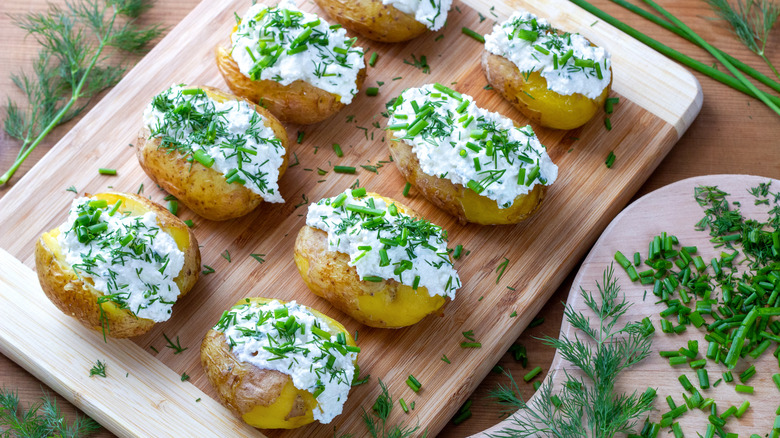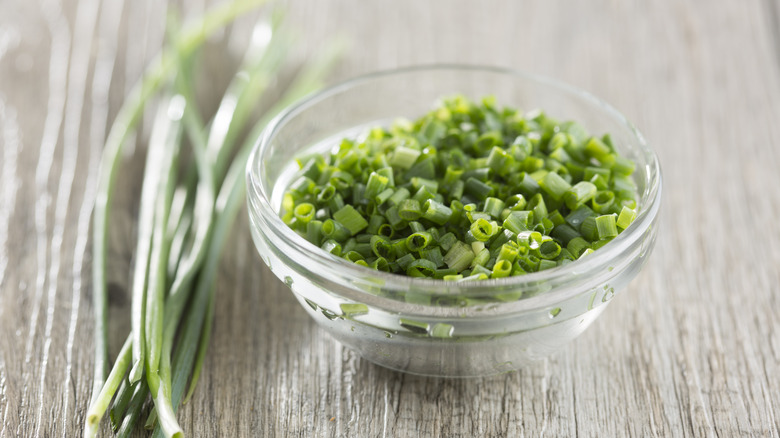Choose Chives Over Scallions For A Better Baked Potato
When it comes to perfecting baked potatoes, there's a lot to remember, from choosing the right oven temperature to baking your potatoes sans foil. Equally important are your toppings, which can either enhance or detract from your starch. After all, the only thing better than a baked potato is one that comes loaded. Enter: scallions or chives, both of which are common finishing touches for the starchy staple.
Yet while chives and scallions are fairly similar, they ultimately have different textures, flavors, and heat tolerances. You'll therefore want to think twice before you use the two interchangeably. For the sake of your baked potatoes, chives tend to be the better option between the two. They're best eaten raw, and, when chopped, they make for the perfect light addition since they have a more mild flavor and a more delicate texture that melds into the tuber well.
Scallions, on the other hand, are more potent, with a more robust onion flavor. They're also far less delicate than chives, usually crunchier and coarser in texture and can therefore prove a little too powerful in baked potatoes. Chives make for the less-intense option and allow home cooks to use them in a multitude of ways.
Chop chives to enjoy alongside, in, or over potatoes
To start, you'll want to bake your potatoes. For simple — but loaded — potatoes, add chives at the very end. Many recipes call for topping cut potatoes with a combination of sour cream and chives. If you'd rather add the herb as you go, you can also enjoy sour cream on the side with chives mixed in for added onion flavor.
For maximum potency, consider making twice-baked potatoes. In these, chives act as a delicious filling alongside sour cream, milk, salt and pepper, and, occasionally, cheese. All you have to do is mix chives with those other creamy ingredients — as well as the interior of your baked potato. Then, stuff the entire mixture back inside your potato skin to re-bake the starch. For a finishing touch, you can add extra chives or employ that sour cream-and-chive dipping sauce. Given these varied opportunities, you'll be glad you chose the more mild onion in lieu of the stronger scallion.

